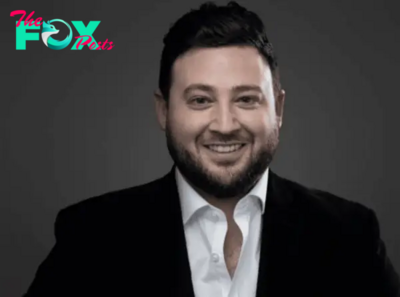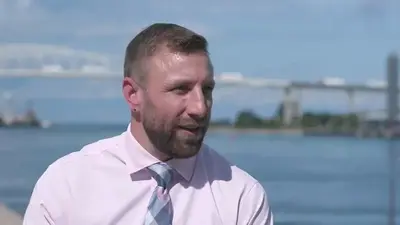Politics
Millions of American kids struggle to read. What are states doing to address it?
Learning to read isn't fair.
It comes naturally for some students. But for others it's a frustrating, agonizing process that, if left unaddressed, can cause long-standing academic problems.
Ask D'Mekeus Cook Jr., a fourth grader from Louisiana, who was reading at a kindergarten level when he started second grade two years ago. Or Journey, another fourth grader from Ohio, who said when she comes across an unfamiliar word it makes her feel "sad." They have both struggled to read -- and they're not alone.
MORE: Math and reading scores for 13-year-olds lowest in a decade, report finds
A combination of under-funded schools, educator shortages, inadequate teacher preparation and months of lost learning due to pandemic school closures have caused a resurgence of concern about kids' reading ability. But Department of Education data reviewed by ABC News show this reading problem has persisted in America for decades.
According to the Education Department's National Assessment of Educational Progress (NAEP), also known as "The Nation's Report Card," roughly one-third of American fourth graders read at or below what's considered the basic level. This has been the case since 1992.
Scores slightly increase as students get older, but not by much. In eighth grade, about one-fourth of students do not read at what's considered the basic achievement level. That percentage stays about the same for high schoolers.

To document America's reading crisis, ABC News Traveled to schools in several states, met families of kids struggling to grasp basic reading skills, and spoke with educators in a race against time to help their students read before they get too old.
"The older that a child gets, the harder it is to go back and put things in the toolbox," Carla Pleasant, a 33-year teaching veteran in Ohio, told ABC News. "It can be done and it is being done, but it is a tough job."
'Reading is the basis of everything'
Pleasant, is a teacher in Warrensville Heights, Ohio, about 20 minutes from Cleveland. In the school district, ABC News met dozens of students who were in summer school, trying to develop the most basic reading skills -- a task some described as particularly daunting.
"I get frustrated when I'm reading sometimes," fourth grader Raven told ABC News. "I will get teared up because I think I can't read, because it's so hard."
MORE: Children hit hardest by the pandemic are now the big kids at school. Many still need reading help
Over the summer, Raven's class was working hard on intensive reading lessons using what's called phonics.
The instruction essentially employs a more rigorous version of "sounding out a word" -- vocalizing the sounds of letters and parts of words -- a long-utilized method of teaching that, for one reason or another, fell out of vogue in some school districts across the country.

"It's helping them crack the code," said reading specialist Shantelle Barhorst, who was teaching the Ohio class. "We don't want them guessing the word, we want to give them the tools necessary so that they can sound out that word."
But Warrensville Heights didn't always teach reading this way.
Roughly a decade ago, their solution to reach struggling readers included a teaching style called balanced literacy, still popular in many schools across the country. The method is designed to develop a love of reading and a comfort with books. It can also involve suggesting students guess certain words and even to look at pictures to decipher the words on the page, something instructors took to calling "picture power."
Pleasant, who said "reading is the basis of everything," disagreed with a push for balanced literacy, instead opting to teach phonics -- out of sight from administrators.
"Keeping it secret from the bosses, but getting success in the classroom," she told ABC News. "I knew it was working. I knew that memorizing things and just pushing things on kids was not going to teach them to love reading."
A new administration eventually followed Pleasant's phonics-focused lead and Warrensville Heights went from sliding reading scores and an impending state takeover of the district's schools, to an A rating with the state of Ohio.
MORE: Video How to keep kids learning amid worsening math and reading scores
The 'Reading Wars'
The campaign for reading-education reform hasn't gone without pushback.
Critics say the "science of reading" is an educational fad and there's no one-size-fits-all solution to the nation's reading problems, which are compounded by under-funded schools, poverty and other social issues.

And proponents of balanced literacy say their approach does teach some phonics, arguing that students who are repeatedly drilled on decoding words are done a disservice because they won't have a passion for books.
Dr. Kymyona Burk is Mississippi's former literacy director and currently with the education non-profit founded by Former Florida Gov. Jeb Bush, ExcelinEd. She told ABC News "those are strategies that poor readers use," citing specific balanced-literacy lessons that include guessing words and looking at pictures.
The back-and-forth has led to years of intense debate among educators, often referred to as "The Reading Wars."
"Everybody thinks they are doing the right thing. Nobody thinks they are evil," Dr. P. David Pearson, an education expert and professor at the Berkeley School of Education, told ABC News. "They all think they're doing what's best for kids. They just read the research differently."
MORE: Could a different method of teaching address low education scores?
"They also have very different definitions of what it means to be a reader," he added.
Pearson cautioned that, while NAEP scores give an accurate snapshot of the nation's reading challenges, the years of students reading below basic levels shouldn't be considered an indictment against balanced literacy or any other teaching style because of non-academic variables affecting students.
The Mississippi 'Miracle'
The success in Warrensville Heights, Ohio, was modeled after a classroom marvel found in what education experts once considered the unlikeliest of places: Mississippi.
A decade ago, the state's fourth grade students ranked last in reading -- 50th out of 50 states. Today, Mississippi is 21st in the nation in literacy. In some education circles, that seemingly impossible turnaround earned the title "The Mississippi Miracle."
Burk explained to ABC News in her first network television interview how she and her colleagues pulled off the Mississippi improvement by pushing for teaching methods, such as phonics, which she says were virtually missing in Mississippi schools.

Burk said Mississippi schools were just graduating kids who didn't know how to read.
"It's happened all across the country," she said to ABC News' Jay O'Brien.
Burk is pushing for other schools to follow Mississippi's lead.
By the start of this school year, ExcelinEd found at least 30 states, including Washington, D.C., and New York City, the nation's largest public school district, required phonics-based "science of reading" policies to address the sagging scores.
That includes Ohio, where Gov. Mike DeWine is backing a law requiring "science of reading" instruction and pushing schools to model themselves after Warrensville Heights.
MORE: One way to boost students' scores? Help teachers conquer their math anxiety
'Reading is the key to life'
The coronavirus pandemic and at-home instruction brought the reading dilemma to students' front doors.
"There were some moments with parents who were sitting at dinner tables with their children and they were realizing for the first time that their child is struggling," Burk told ABC News.
That's when D'Mekeus and Kezne' Cook discovered their son, D'Mekeus Jr., was behind.

"It's almost as if we question ourselves, like, is our child the only one going through this?" his father said. "Reading gives you the opening door to everything we do in life. Reading is the key to life."
Louisiana, where the Cooks live, is another state that recently overhauled its reading curriculum, trying to help hundreds of thousands of underperforming students by focusing on phonics and other "science of reading" education.
"We needed a reading revival in our state," said Louisiana Superintendent of Education Dr. Cade Brumley. "I think the Educational system lost its way at some point around this. Confusing tactics were employed to teach children how to read."
As part of their reading initiative, Louisiana also created a program giving students a $1,000 voucher for private reading tutoring, which is what has helped D'Mekeus Jr. attend regular tutoring sessions at a Sylvan Learning Center near his home in Lafayette.
"[Students and parents] are so excited, and they cry in my office, because it's life changing," said Christy Sharon, who has owned the tutoring center for more than 25 years.
Louisiana's program is still new and it remains to be seen if it will have the success of Warrensville Heights or the state of Mississippi. Dr. Brumley says early results have been promising, but the state has a long way to go.
Sharon told ABC News that schools across the country are facing a dilemma when it comes to helping kids master reading while they're young. But there is still hope, she said.
"[If] we can get these children early, and we can teach them to read, they can do anything," she said.
-

 Politics12m ago
Politics12m agoAppreciating the Marvels of Our Great State – Ed Iannuccilli
-

 Politics11h ago
Politics11h agoTrump and Hush-Money Trial’s Central Witness Share a Tortured History
-

 Politics14h ago
Politics14h agoGreater Detroit is becoming more diverse and less segregated – but Asians and Hispanics increasingly live in their own neighborhoods
-

 Politics14h ago
Politics14h agoHow federal tax dollars meant to fight climate change could end up boosting Louisiana’s fossil fuel production
-

 Politics18h ago
Politics18h agoFrom Military Coups to Selling Nuclear Secrets, Supreme Court Wrestles With Implications of Granting Trump Immunity
-

 Politics20h ago
Politics20h agoJapan’s diplomatic charm offensive in US aims to keep Washington in committed relationship
-

 Politics1d ago
Politics1d agoBusiness Beat: Abe Cohen new VP of Business Development for RI, Marquis Health Consulting
-

 Politics1d ago
Politics1d agoAdvocates, providers on new Nursing Home mandates – Herb Weiss



























